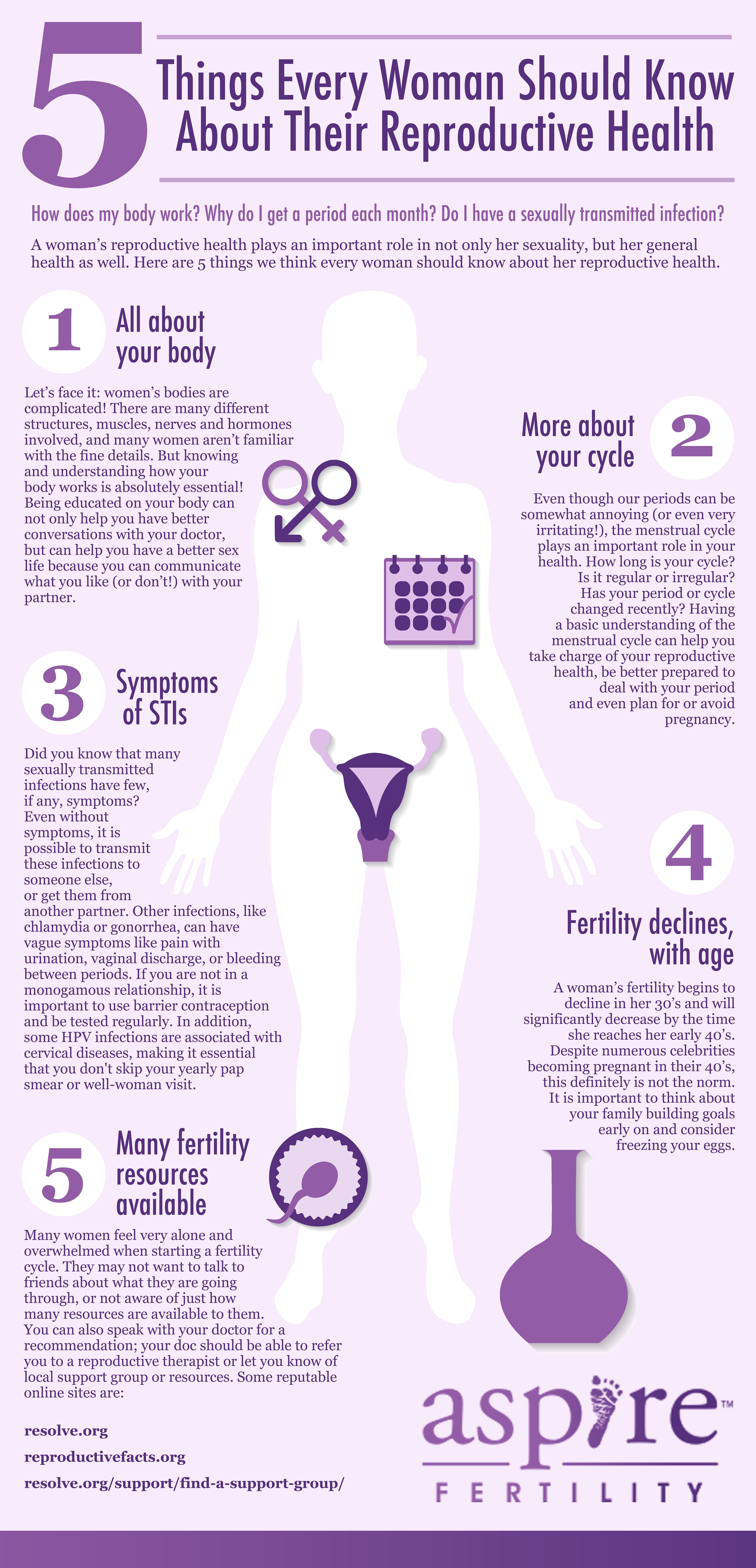5 Things Every Woman Should Know about Their Reproductive Health

How does my body work? Why do I get a period each month? Do I have a sexually transmitted infection? A woman’s reproductive health plays an important role in not only her sexuality but her general health as well. Here are 5 things we think every woman should know about her reproductive health.

1) All about your body: Let’s face it: women’s bodies are complicated! There are many different structures, muscles, nerves and hormones involved, and many women aren’t familiar with the fine details. But knowing and understanding how your body works is absolutely essential! Being educated on your body can not only help you have better conversations with your provider, but can help you have a better sex life because you can communicate what you like (or don’t!) with your partner.
2) More about your cycle: Even though our periods can be somewhat annoying (or even very irritating!), the menstrual cycle plays an important role in your health. How long is your cycle? Is it regular or irregular? Has your period or cycle changed recently? Having a basic understanding of the menstrual cycle can help you take charge of your reproductive health, be better prepared to deal with your period and even plan for or avoid pregnancy.
3) The symptoms of sexually transmitted infections (STIs): Did you know that many sexually transmitted infections have few, if any, symptoms? Even without symptoms, it is possible to transmit these infections to someone else, or get them from another partner. Other infections, like chlamydia or gonorrhea, can have vague symptoms like pain with urination, vaginal discharge, or bleeding between periods. If you are not in a monogamous relationship, it is important to use barrier contraception and be tested regularly. In addition, some HPV infections are associated with cervical diseases, making it essential that you don’t skip your yearly pap smear or well-woman visit.
4) Fertility declines with age: A woman’s fertility begins to decline in her 30’s and will significantly decrease by the time she reaches her early 40’s. Despite numerous celebrities becoming pregnant in their 40’s, this definitely is not the norm. It is important to think about your family building goals early on and consider freezing your eggs.
5) There are many fertility resources available: Many women feel very alone and overwhelmed when starting a fertility cycle. They may not want to talk to friends about what they are going through, or not aware of just how many resources are available to them. Some reputable online sites are:
You can also speak with your provider for a recommendation; your doc should be able to refer you to a reproductive therapist or let you know of local support group or resources.


















